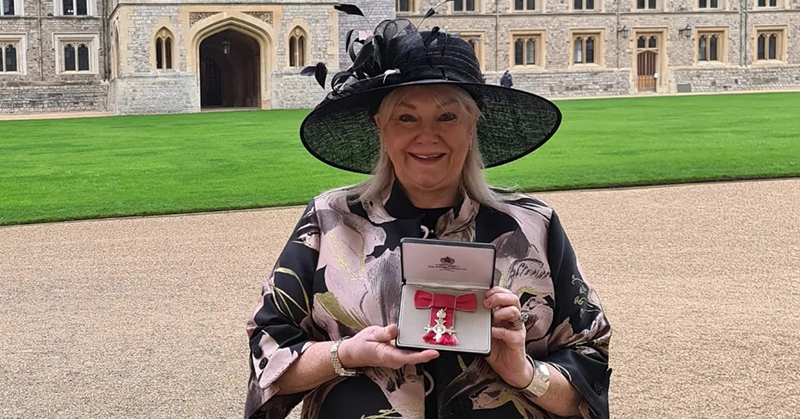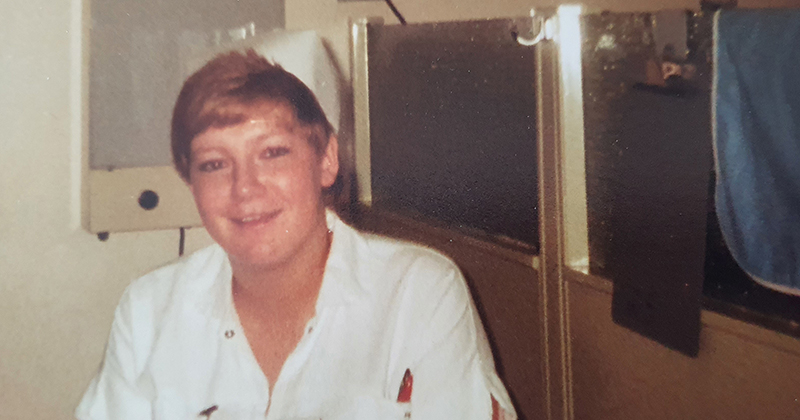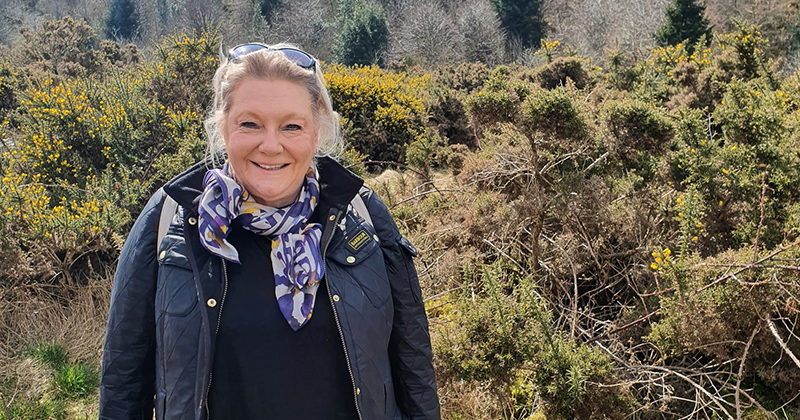Sharron Robbie, managing director of the Devon & Cornwall Training Provider Network, has her feet firmly in both the colleges and ITP camps. Can she get her unique cross-sector voice heard at a national level?
Training provider networks are perhaps the unsung heroes of FE. Ministers new to the sector quickly learn there are independent training providers, passionately represented by the Association of Employment and Learning Providers, and colleges, again well-represented by the Association of Colleges, plus a multitude of other stakeholders. So far, so (fairly) clear.
But then there are training provider networks – not-for-profit organisations run off membership fees and other income streams – who arguably do the most important job of all.
They bring together independent training providers, colleges and other FE stakeholders all under the same roof, are locally focused, and advise providers, employers and government on their interests and needs.
According to Sharron Robbie, managing director at the Devon & Cornwall Training Provider Network, there are about 20 TPNs across the country, varying wildly in size, finances and governance set-ups. Hers was founded in 2005, while others are much younger. They seem to be organic organisations, driven along by people passionate about skills provision.
Sharron Robbie is the sort of energetic, go-getting person you’d want in charge of yours. Her members are six colleges, 30 independent training providers, three universities, three employer providers, two awarding bodies, two chambers of commerce, three local authorities and (pause for breath) two careers groups. It’s an FE stakeholder melting pot.

There’s an £850 flat annual fee to be a member, and although Robbie has taken membership from 32 to more than 50 providers in the six years since she became managing director, that still only brings in about £46,000 a year.
But since she’s been in post, she says, she’s boosted income streams and last year, her network pulled in just shy of £200,000, through a combination of winning project money from local authorities and other stakeholders, and through acting as an “apprenticeship expert” delivering training and advice. It’s a significant increase.
“We are one of the most expensive,” admits Robbie, regarding the annual fee – but she explains that it’s worth it. Members get access to four Teams calls, four face-to-face conferences, daily updates from Robbie if needed, board expertise and free workshops and events each year.
These workshops might be universally relevant (a recent one was “How to make the best use of LinkedIn”), or reactive to local context.
After the terrible shooting and killing of five people in Plymouth last summer, Robbie’s network delivered training on “incels” (an internet term for young men with strongly misogynistic views). The “Plymouth shooter”, as he became known, was an apprentice with Babcock International, making it all the more important to support providers.
Aside from this sort of grim but much-needed training, Robbie’s next project is more positive and global in outlook.
“We’re going to Morocco to meet partners on a blue and green skills project,” she says excitedly.
Next, we’re going to Morocco for a blue and green skills project
“Morocco is key, they’ve got a lot of wind and sun and they will be supplying the UK with electricity soon.”
Her team won the grant from the British Council, and will be sharing expertise from ITPs and colleges such as Exeter College and Truro College with partners in the north African country.
“The British Council were really pleased, because it’s usually colleges that apply, and this was the first time a training provider network has bid,” she grins.
Robbie perhaps has a naturally internationalist outlook, having grown up in Malaysia and later in Hong Kong. Her father was in supply and logistics for the Royal Navy and her mother was a nurse – and a big influence on her.
“I remember her going to work in her beautifully starched clothes and big nurse’s hat in the 1960s, and a chap walking with her with a bamboo pole carrying a bag of instruments,” Robbie smiles. Local Chinese and Malay families become close friends, but Robbie also had to learn to entertain herself.
“As a services child, you’re left to your own devices quite a lot, so you become quite resilient and quite confident. I saw my mother as a role model ̶ she was quietly strong but with a core of empathy and a caring nature.”

But the young Robbie also took after her father, who was a good “wheeler and dealer”. Her next story (she is a born storyteller) has to be one of my favourites ever. “I was given a budgerigar for my birthday, and a few months later, my sister got a budgie too.
“So my sister goes crying to my parents, because apparently seven-year-old Sharron had said: ‘If your budgie is in my cage, you’ll have to pay rent.’” Robbie cackles with delight. “I was very entrepreneurial!”
The return to the UK was a shock, and opportunities felt limited in the 1970s and 1980s. “I’d come from living in this quite cosmopolitan country, and it was really strange coming back. There were miners’ strikes and shortages. You know, prawn cocktail and black forest gateau were like, ‘wow’.”
Aged 14, Robbie was placed in a secondary modern in Plymouth, where, extraordinarily, students were limited to taking certificates of secondary education (CSEs) as opposed to O-levels and were capped at achieving a grade 1, which was equivalent to only a C grade at O-level.
After that she went to Plymouth College of Further Education, now City College Plymouth, and later to Bristol to work as a dental nurse in hospital, earning £6.50 a week and gaining two vocational nursing qualifications, of which she was “very proud”.
Next, she followed in her father’s footsteps as well as her mother’s, becoming a Royal Naval dental nurse and “removing impacted wisdom teeth and taking out glass”. It doesn’t sound like it was for the faint-hearted.

On getting married and then pregnant, she was forced to leave the Navy (how times have thankfully changed) but, undeterred, came up with an ingenious recruitment agency model to make money and fill a local skills gap. She built up a roster of women, including mothers who were dental nurses, and was rung by dentists with a vacancy that day. She would then charge the mothers to babysit their child, and charge the dentist for filling the vacancy.
If anyone is a walking-talking example of lifelong learning, Robbie is. Aged 39, she decided she wanted a university degree in business – but was refused, because of the ridiculous education policy during her childhood that meant she didn’t have maths O-level.
“So I sold my house (my husband was very supportive) and did a college foundation course in marketing,” she announces. City College Plymouth had “fantastic” lecturers, and Robbie got her foundation degree between 2002 and 2004. She was surrounded by teenagers on the course but, as she puts it, she “didn’t give a damn”. Quite right too.
Her first job was as director of marketing for an IT company, which didn’t suit her. But then in 2007 she landed a marketing officer job at her alma mater, City College Plymouth. She would stay for almost nine years, working her way up to director of marketing, corporate relations and enterprise.
“I left the college because I wanted to do the next thing, and become assistant or vice principal, but the structure didn’t allow that, which is fine,” she continues. Instead she became commercial director for Trinity Mirror news group, a high-level, “tough gig” selling ad space.
Then one day in 2016 Craig Marshall, the former managing director at the Devon & Cornwall TPN rang Robbie, and told her she should take his job. “We did a road trip across Devon and Cornwall and over six months he introduced me to all the training providers. It was a fantastic introduction. I loved seeing what went on.”
The TPN team today are a microcosm of the FE sector: there’s chair Mike Blakeley, a senior leader at Exeter College, as well as staff from South Devon College, City College Plymouth and Petroc College, and others from the ITP, charity and awarding body sector. Robbie herself is also chair of AELP’s regional network south.

This puts her in a unique position to navigate what she acknowledges is a “highly competitive space… What we offer is that critical friend. We’re able to broker those partnerships,” she says. “My impartiality – I’m not trying to grab learners – means I’m a safe pair of hands, I’m a safe harbour for collaboration.”
It seems a no-brainer to have such cross-sector organisations, I comment. Why isn’t there a national organisation to represent them all and amplify their voice?
Robbie almost leaps out of her chair in agreement. “What we have been looking at is bringing together a national group of training provider networks,” she explains. “That’s one of our strategies. When you look at how many training providers there are, how many learners, it’s massive. But actually it’s all in disparate groups.”
She’s already built strong connections with other TPNs across the south west, meeting regularly with the Dorset & Somerset, west of England, Gloucestershire & Wiltshire TPNs.
Should TPNs also get some government funding? I continue.
“We should have government funding,” she nods. “We do a huge amount of work, including a huge amount of unpaid work. We attend skills advisory panels, we provide updates, we provide huge amounts of information.
“I think our colleagues in ESFA and the Department for Education do recognise the worth of these local networks and if they could, they would. They call and text and email me all hours of the day and night!” she hoots.
“We just need to keep reminding government of the great work training provider networks do, in supporting training providers in FE.”
It’s food for thought. If anyone’s able to make the business case for training provider networks, it’s Robbie.









Your thoughts